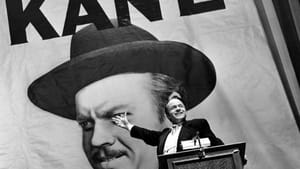Stay in the Loop
BSR publishes on a weekly schedule, with an email newsletter every Wednesday and Thursday morning. There’s no paywall, and subscribing is always free.
The Inquirer cops out
The Inquirer's non-endorsement

H.F. “Gerry” Lenfest, publisher
Philadelphia Inquirer and Daily News
Dear Gerry:
In Sunday’s Inquirer you announced that instead of endorsing a candidate for governor this fall, you had asked your editorial boards “to provide a summary of where the candidates stand on the critical issues facing the state, as well as the positions each paper has taken on those issues, and then let the voters decide who they think is most qualified.”
I suspect you mean well and that your heart’s in the right place. But both morally and practically, this is a terrible idea for all parties concerned — the Inquirer, its readers, and the cause of civic virtue.
In any given community, editorial writers are virtually the only people who are paid to spend their waking hours evaluating public issues. Their recommendations — about political candidates or anything else — hold interest for the rest of us who lack the time to meet personally with political candidates and study their characters in depth. We are adults capable of making up our own minds, but we are curious about your editorial writers’ preferences — which is quite different from taking sides.
Drama and conflict
An editorial page’s refusal to choose between candidates is essentially an abdication of its public responsibility. It also sets a terrible example. If full-time editorial writers can’t or won’t come out forthrightly for one candidate or another, how can you expect the rest of us to do so at the polls?
I’m curious to know whom you consulted before implementing this policy. Any experienced editor could have told you that your non-endorsement policy effectively begs your readers to avoid the editorial page. The key to attracting audiences — or voters, or sports fans — is drama. The essence of drama is conflict. You dramatize public issues not by summarizing the candidates’ positions but by expressing a point of view. If you do so forthrightly, readers will read your editorials and respond. But if you say, in effect, “We don’t have an opinion — please tell us yours” — even the most opinionated readers will direct their energies elsewhere.
Annenberg’s agenda
Don’t take my word for it. For many years, the late lamented Philadelphia Bulletin was infamous for its on-the-one-hand, on-the-other-hand editorials. These editorials established the Bulletin’s neutrality on any given issue. They also drove Bulletin readers away from the editorial page and from interest in public issues generally.
To be sure, there once was a time when real newspaper publishers like Walter Annenberg and fictional ones like Charles Foster Kane used their editorial pages to impose their personal agendas on readers and public officials alike. But readers today are not so easily led. We look to a variety of sources, and we turn to editorial pages not so much for marching orders as for insight. We’re capable of making up our own minds. But at the end of a campaign it would be helpful, as one small piece of the puzzle, to know whether your editorial writers prefer Tom Wolf or Tom Corbett. Such insight might even inspire us to vote, if only to prove your editorial writers wrong.
“Above all,” you exhort in your conclusion, “do go to the polls and vote Tuesday, Nov. 4. It is a right and responsibility of all Americans.” That’s surely a noble sentiment. But the relevant question is: How will you motivate us to go there, aside from preaching at us? If your own people — who study politics from dawn to dusk — don’t care enough to express a choice, why should we?
Sign up for our newsletter
All of the week's new articles, all in one place. Sign up for the free weekly BSR newsletters, and don't miss a conversation.

 Dan Rottenberg
Dan Rottenberg